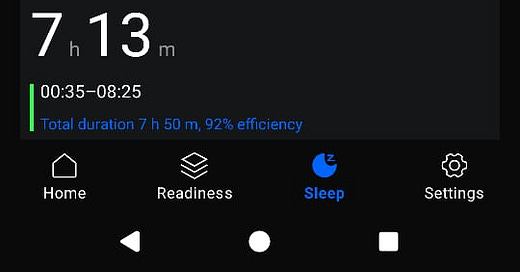If you've ever had a few drinks and noticed your sleep sucked, you're not imagining it. Alcohol can significantly alter your sleep architecture, suppress your heart rate variability (HRV), and impair your recovery. But with the right approach, you can mitigate much of the damage—and even wake up refreshed.
What’s HRV and Why It Matters
Heart Rate Variability (HRV) is the fluctuation in time between each heartbeat. It's a powerful marker of autonomic nervous system balance and overall recovery.
Healthy HRV range: 40–60ms for the average adult
Fit individuals: 70–100ms
Consistently <40ms: May suggest chronic stress, poor recovery, or systemic dysfunction
Higher HRV = more parasympathetic (rest & digest) activity = better recovery and adaptability.
The Temperature Drop
Your body temperature is supposed to drop during sleep. This drop is a signal that helps you enter deeper stages of rest. If your temperature doesn’t fall, that’s a red flag for disrupted or shallow sleep.
I use the Nexring (similar to the Oura ring) to monitor this. It measures finger temperature, which serves as a proxy for core body cooling.
Understanding Sleep Cycles
Your sleep is broken into different phases, each with distinct benefits:
REM Sleep (Rapid Eye Movement)
Function: Memory consolidation, learning, emotional processing
Optimal range: 1.5 to 2 hours per night (~20–25% of total sleep)
Deep Sleep (Slow Wave Sleep)
Function: Physical repair, immune restoration, growth hormone release
Optimal range: 1.5 to 2 hours per night (~13–23%)
Quick word before we get into it: I won’t be responding to comments here, because I simply don’t have the time for it.
I’m able to help you best when I do research, experiments and create content.
If you want a specific solution to a specific problem, check out my courses here.
If you’d like closer access to me, join TestoTribe. I’ll respond to all questions there and we also do a live weekly Q&A coaching call.
Alternatively, you can book a consultation here.



